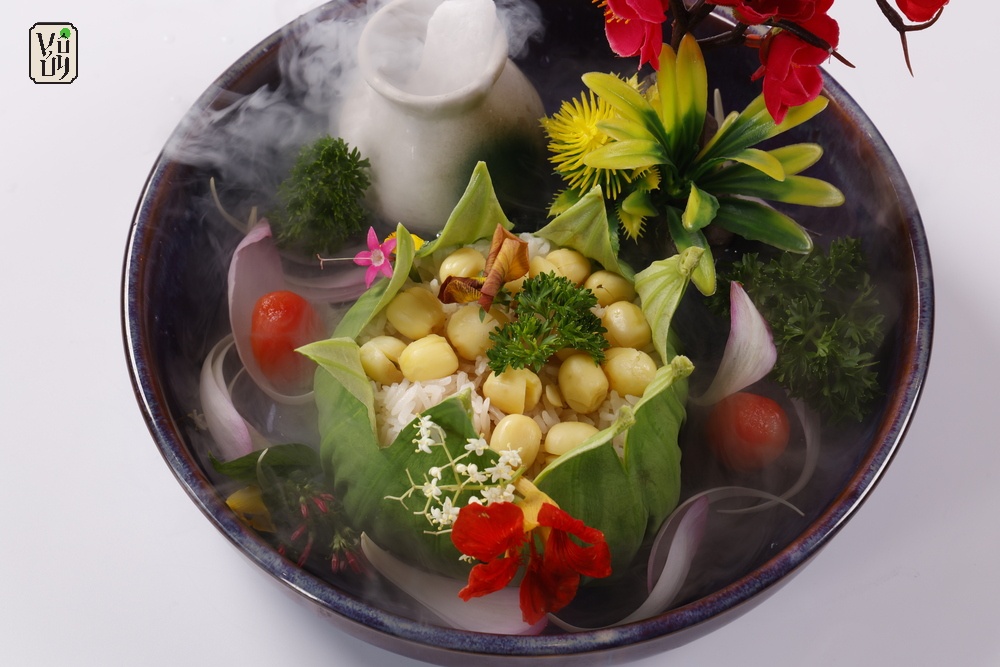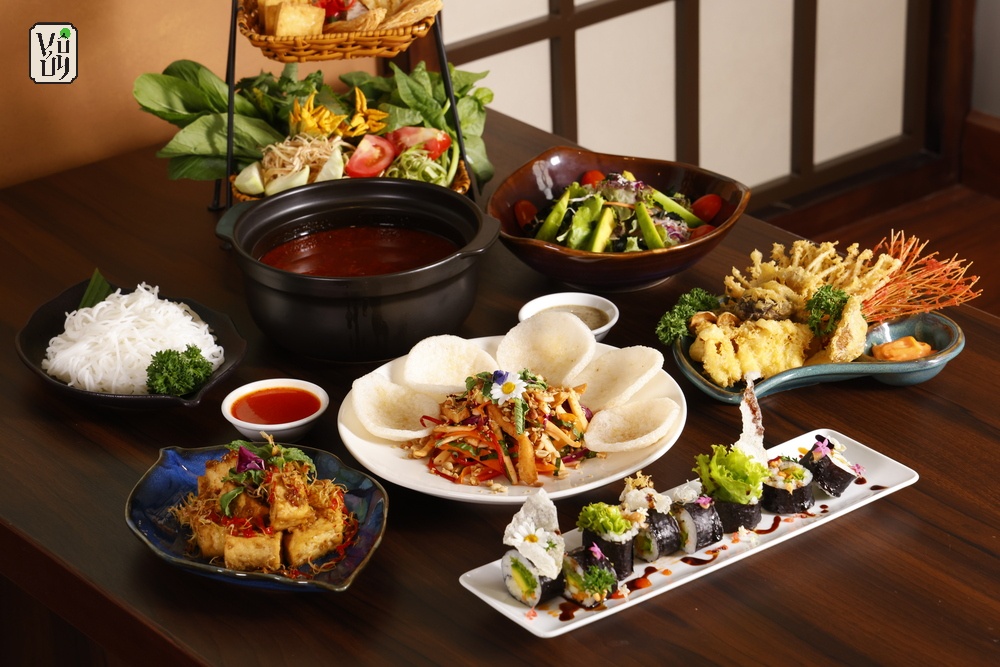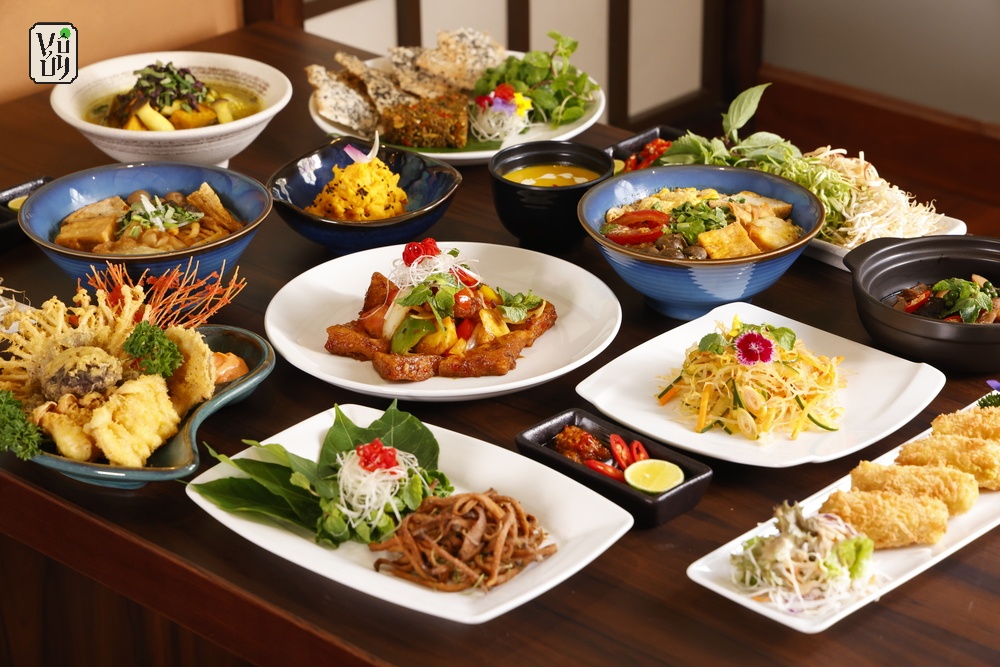The Benefits of Vegetarianism in Buddhism: A Meaningful Path of Practice
Vegetarianism in Buddhism is not merely a dietary habit—it is a meaningful path of spiritual cultivation. From the Buddhist perspective, choosing plant-based foods nurtures compassion, reduces harm to living beings, and brings peace to the mind. In this article, Vo Uy Vegetarian Restaurant walks with you to explore the full benefits of vegetarianism in Buddhism—from ethics and health to positive impacts on the environment and the community.
Meaning and Benefits of Vegetarianism in Buddhism
Buddhist vegetarianism is rooted in the precept of non-killing, one of the five fundamental precepts upheld by lay Buddhists. Refraining from taking life is not only an expression of compassion but also a way to keep the mind at ease and to avoid creating negative karma. Buddhist scriptures teach that all beings cherish life and seek safety. When we choose plant-based foods, we are sowing wholesome seeds within ourselves.
In Mahayana Buddhism, vegetarianism is also regarded as an expression of the Bodhisattva path—living for the welfare of all beings. The more compassion we practice in each meal, the closer we move toward awakening. In many Buddhist countries such as Vietnam, China, and Japan, vegetarian food is embraced not only by Buddhists but also by the wider public as a beautiful spiritual tradition.

Differences in Vegetarian Practice Across Buddhist Traditions
In Theravada communities, vegetarianism is not strictly required; it often depends on context and personal resolve, as long as one does not directly participate in killing. By contrast, Mahayana communities encourage lifelong vegetarianism as a broader expression of compassion and sometimes view meat consumption as inconsistent with moral discipline.
Monastics in Mahayana traditions typically avoid all animal products, while Theravada practice can be more flexible. Despite these differences, both traditions emphasize that vegetarianism helps purify the body and mind and accumulate merit.
Benefits of Vegetarianism from a Buddhist Perspective
Spiritual and Ethical Benefits
For Buddhist practitioners, vegetarianism is an essential part of moral cultivation and compassion training. By not eating meat, one gradually learns to place oneself in the position of other living beings and to value life more deeply. That compassion naturally spreads through speech and action, shaping how we treat people and the world around us.
Vegetarianism also helps cleanse the mind, easing restless thoughts, anger, and excessive desire. Abstaining from meat requires willpower and self-discipline, strengthening perseverance and the ability to overcome cravings. For this reason, many find that vegetarian practice brings them closer to awakening and liberation from the cycle of birth and death—one of the core aims emphasized in Buddhism.
Classical teachings echo this spirit: some sutras warn that eating meat binds us to cycles of harm, while others encourage avoiding meat to keep the mind pure and free from anger. Such guidance affirms vegetarianism as a series of steady, practical steps that help one stay firm on the path of wholesome living.

Physical Health Benefits
Research has shown that a well-planned vegetarian diet offers significant health advantages. Reducing or eliminating animal products lowers the intake of harmful cholesterol, thereby helping reduce risks of cardiovascular disease, hypertension, type 2 diabetes, and obesity. Many people report feeling lighter, digesting better, enjoying healthier skin, and thinking more clearly after a period of eating plant-based.
Natural vegetarian foods—vegetables, fruits, mushrooms, soy products, legumes, and whole grains—are rich in fiber, vitamins, and minerals. These nutrients support immunity, aid detoxification, and provide clean, sustained energy. When combined with meditation, vegetarianism helps practitioners achieve balance between body and mind, improve sleep quality, and cultivate inner calm.
To do it right, remember to include plant proteins, vitamin B12, iron, and omega-3 from sources such as tofu, chia seeds, oats, seaweed, and whole grains. Smart vegetarian planning supports robust health for both mental and physical work.

Environmental and Social Benefits
Vegetarianism benefits not only the individual but also the planet. Eating less meat reduces the demand for intensive animal farming—one of the drivers of greenhouse gas emissions and water pollution. A consistent vegetarian practice can save large amounts of water and significantly lower CO₂ output each year.
Socially, vegetarianism helps spread a culture of peace and kindness. When we reduce greed, anger, and habits of harming other beings, communities become more harmonious and less violent. In many places, cooking and sharing vegetarian meals has become a meaningful activity that strengthens bonds and nurtures compassion.
Economic Benefits and a Simpler Lifestyle
Another often overlooked benefit is that vegetarianism can save money and time. Plant-based foods are widely available, simple to prepare, and often keep longer than meat or fish. A vegetarian lifestyle also encourages simplicity and contentment, turning our attention inward rather than chasing material desires. This aligns with the Buddhist value of “knowing enough”, living peacefully with what we already have.

Practicing Vegetarianism Correctly to Maximize Benefits
Not everyone will experience these benefits without understanding the spirit of Buddhist vegetarianism. First, maintain a calm and humble mind. Vegetarianism is not for showing off or judging others. It is meaningful only when the mind does not nourish hatred or excessive desire.
Next, aim for balanced nutrition. Avoid eating a narrow range of vegetables only; combine diverse foods to ensure adequate nutrients. Those with specific medical conditions should consult a doctor or nutritionist before switching to a fully vegetarian diet.
If you are new, consider starting with flexible approaches: semi-vegetarian days, vegetarian meals on the 1st and 15th days of the lunar month, or 10 vegetarian days per month. This gentle transition helps the body adapt while still offering benefits for both body and mind.
Practicing Buddhist Vegetarianism at Vo Uy Vegetarian Restaurant
At Vo Uy Vegetarian Restaurant, vegetarian dining is not only about delicious food—it is also a spiritual experience. Each dish is prepared from fresh ingredients, without MSG, and with natural seasonings, preserving the pure flavors of nature. A warm, Japanese-inspired space helps guests settle the mind and appreciate the deeper meaning of every meal.
We encourage guests to eat mindfully—eat slowly, chew well, and savor each bite with gratitude. Every dish is a reminder to thank nature, the cooks, and oneself. For anyone wishing to begin a vegetarian journey, Vo Uy is an ideal starting point—a place where flavor, compassion, and mindfulness come together.
Reserve your table at Vo Uy:
- Address: 47 Street No. 3, CityLand Park Hills, Ward 10, Go Vap District, Ho Chi Minh City
- Hotline: 0902 353 527
- Website: nhahangvouy.com
- Fanpage: facebook.com/nhahangchayvouy
- Google Maps: Link Google Maps

Frequently Asked Questions About the Benefits of Vegetarianism in Buddhism
Do I have to be a Buddhist to eat vegetarian?
No. Anyone who wishes to nurture compassion and live healthily can adopt a vegetarian diet. Buddhism offers guidance, not compulsion.
Will I lack nutrients if I become vegetarian?
A balanced plant-based diet can fully meet nutritional needs. Include legumes, nuts, leafy greens, and soy products.
Does vegetarianism help calm the mind?
Yes. Many people feel lighter, less irritable, and more settled in meditation when they eat plant-based.
Can I alternate vegetarian and non-vegetarian days?
Absolutely. Starting with a few days each month helps your body adapt while still delivering tangible benefits.
Peaceful Living Through Mindful Meals
The benefits of vegetarianism in Buddhism—ethical, physical, and environmental—have been outlined above. If you are ready to begin a gentle yet profound journey into plant-based living, let Vo Uy Vegetarian Restaurant accompany you. Here, you will not only enjoy good food but also discover quiet moments of peace—because when the mind is at ease, every flavor becomes complete.


 0902 353 527
0902 353 527  cskh@nhahangvouy.com
cskh@nhahangvouy.com 

